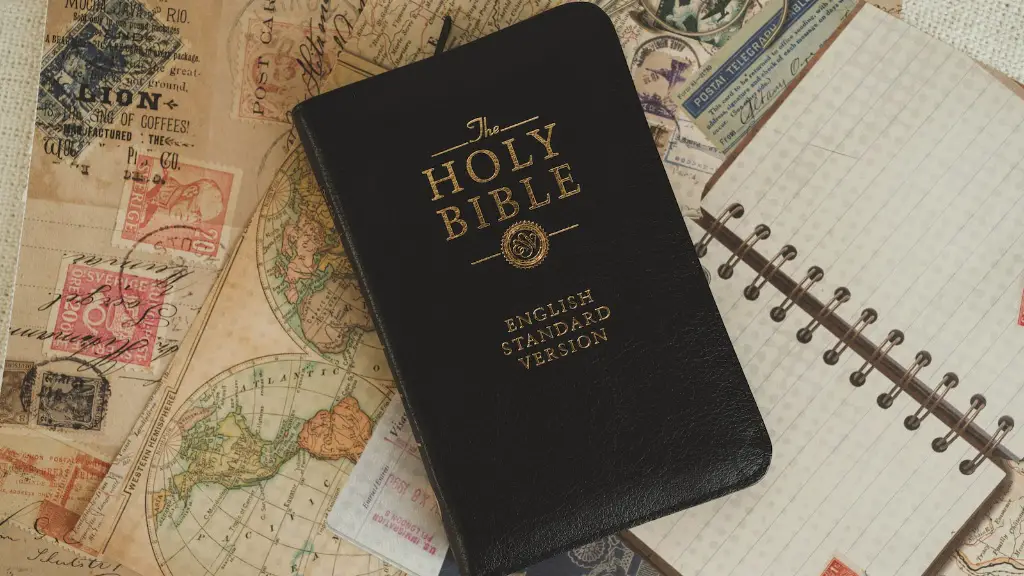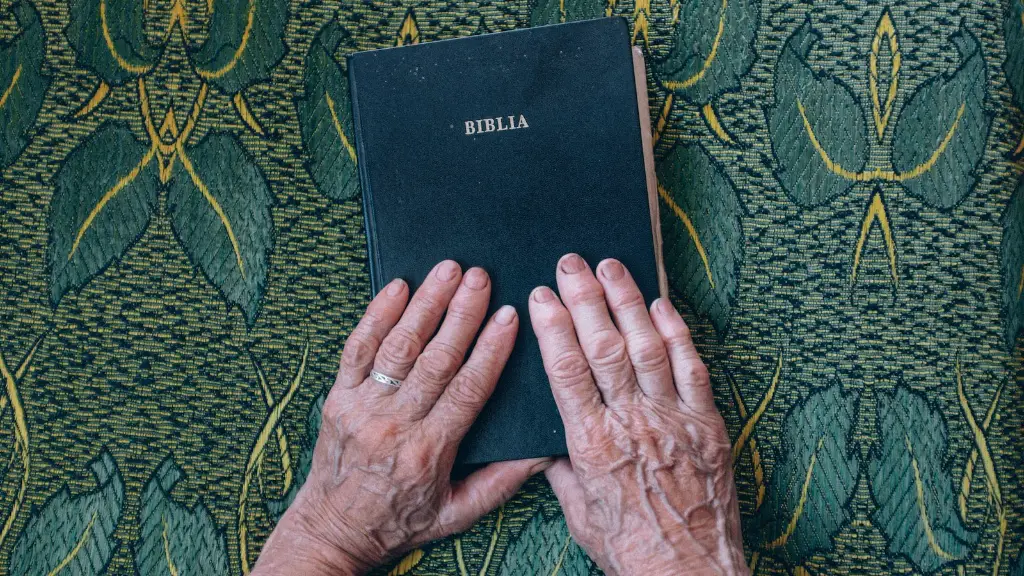The Bible is an ancient collection of texts, revered by believers around the world. Within its pages lies answers to many burning questions, often leading to heated debate among theologians, religious experts and everyday people just looking for insight. In particular, there is much interest in understanding what the Bible has to say about unborn babies, a highly emotive and often divisive subject.
At first glance, the Bible’s treatment of the unborn child might seem enigmatic – scattered throughout its pages are frequent references to unborn babies and unborn life, however there is no one single instance where all the points are collected and discussed – which only compounded the complexity.
Such perplexity has resulted in a variety of conclusions and interpretations, many of which differ widely. Some interpet the bible as bestowing full rights to unborn babies as soon as they are conceived. While others view the bible as acknowledging the potential life but in no way endowing it with rights.
One example is Psalm 139:13-15 which reads , ‘For you created my inmost being; you knit me together in my mother’s womb. I praise you because I am fearfully and wonderfully made; your works are wonderful, I know that full well.’. Here some might argue that this passage celebrates and recognizes the fetus, while others would insist that the passage simply speaks to God’s unchanging and immutable understanding of the unborn child and his/her potential life.
Personal interpretation aside, it is generally accepted by most religious experts that the bible does not shy away from discussing abortion, particularly in context with the death penalty for those committing the act. Such examples are found in Exodus 21:22-25 and in other parts of the Bible, leading many to conclude that the Bible very much takes a hard line on abortion.
But as usual, the full truth lies somewhere in between. It is clear that the Bible acknowledges the potential life of the baby and indeed in several passages speaks of its significance and sacredness, while at the same time acknowledging that the rights of the mother must also be protected.
God’s Unconditional Love for Unborn Babies
The bible does not shy away from affirming the idea that God loves all unborn babies, regardless. A common example is found in Jeremiah 1:4-5 which states that God knew Jeremiah even before he was born and had appointed him for a special purpose. This affirmation of God’s unconditional love for unborn babies was once again echoed in the New Testament with Christ’s birth celebrated with the arrival of baby Jesus.
The bible has many other anecdotes, which demonstrate God’s continuous support and affirmation of unborn life. For example, Numbers 6:25-26 mentions both mother and baby when speaking of God’s blessing, a clear gesture that both parent and unborn baby respectively are seen and cherished by God. Other examples include Isaiah 44:1-3 and Luke 1:15 where God is said to have a direct relationship with unborn babies.
The Bible often mentions the special status of unborn babies, referring to them as ‘children’ and ‘people’, making a clear point that unborn babies are seen as complete people in the eyes of God. This is further evidence that the Bible acknowledges the full potential of the unborn baby and implies a strong protection of their rights.
God Protecting Unborn Lives
The Bible speaks particularly often of God directly protecting unborn lives, such as in Exodus 21:22-25 where God authorized the death penalty for anyone who caused a pregnancy to end in a miscarriage. Here God is said to protect the unborn as if it were a full person. This clear gesture serves to demonstrate the stress the Bible places on both the physical and ethical protection of unborn life.
In Judges 13:2-9, Samson’s parents were visited by an angel and were told they could not cause harm to the fetus in any way. While in the Book of Job, the Bible mentions that God reserved the right to give and take away, but here warns Job that even in his tribulations, he was not permitted to punish the unborn.
Both of these passages serve as a reminder that killing an unborn baby was and still is a crime in the eyes of God. By explicitly mentioning God’s wrath for anyone who harms an unborn baby, the Bible unequivocally upholds the sanctity of an unborn child’s life and speaks to the protection of their rights.
Love and Care for Unborn Babies
The loving care for unborn babies can be easily seen throughout the Bible, especially in regard to female characters, who are portrayed as showing particular care for the unborn child. For example, when Elisabeth became pregnant with John the Baptist, she is said to have ‘rejoiced with a loud shout of joy’, evidence of her joy and compassion for her unborn.
In similar fashion, Mary is described as saluting her unborn son, Jesus, with a song of praise. This strongly implies that the love and admiration for an unborn baby cannot be denied and is certainly a principle of the Bible.
The Bible also provides guidance as to how to treat a pregnant mother and indeed, how society should as a whole, treat an expectant mother. In Deuteronomy 22:9, God states that a expectant mother’s life must be protected and not taken by any means. This serves as a stark warning to those who would consider abusing the rights of expectant mothers, however it also reiterates the importance the Bible places on the unborn child and advocates for its protection.
How the Bible Views Abortion
The Bible does not make a clear and final judgement on abortion and as such draws on a variety of passages to reach it’s conclusion. But what is clear is that the Bible does not advocate for abortion, particularly when used as a means of contraception. It is clear that the Bible views abortion as a serious crime, a judgement conveyed explicitly in both the Old and New Testaments.
This notion is reinforced by the frequent reappearance of comparisons between a mother’s womb and God’s own home, suggesting a feeling of inviolability and reverence associated with a mother’s unborn. And indeed in many of the passages discussing this issue, God comes to the defense of the unborn, advocating for its rights.
But perhaps the best way to understand the Bible’s position on abortion is to view it through the lens of a loving God, who created us all in his image and wants us all to live happy and fulfilled lives. The Bible clearly makes mention of the potential life of the unborn and acknowledges its importance and its connection to God, while at the same time protecting the rights of the Mother.
A Mixed Message of Unborn Babies
Overall the Bible’s message on unborn babies seems to be a mixed one – recognizing the great potential and value of unborn babies, while at the same time protecting the rights of the expectant Mother. And while there is no single passage condoning abortion outright, there are numerous passages suggesting that it is a serious crime – one that can result in punishment.
In any case, the Bible does not shy away from discussing the issue, its many references to unborn life being proof of its acknowledgement of the developing baby and its respect for the potential life within the womb. Irrespective of personal opinion, it is clear that the Bible view of an unborn child is one of love, respect and protection.
Punishment for the Act of Abortion
As previously mentioned, the Bible does reference the death penalty for those committing the act of abortion, and in particular in Leviticus 20:2-5 which states that anyone who takes part in the act, both the expectant mother and anyone else, is to be put to death.
Interpretations vary, however it is generally accepted that the death penalty is only applied in the most extreme cases, such as when a potential life is taken through a premeditated action or intention. And while in modern society such a punishment is now prohibited and condemned, the passage still serves as a reminder of how seriously and fiercely the Bible takes the sacredness of unborn life.
Separation of Church and State and Unborn Babies
The major source of disagreement when it comes to discerning the Bible’s views on aborted babies lies in the religious compromises between what believers and non-believers respectively deem to be the ‘right’ thing to do. It is clear that the separation of Church and State has resulted in a variety of conclusions when it comes to discussing rights and protections for the unborn child.
In summary, the bible does not offer one single conclusion when discussing the rights of unborn babies, as opposed to what is widely accepted in current societies. However, it is clear that the bible views the unborn child as special and valuable, and advocates for its right and protection.
The Voice of the People
Public opinion of abortion is just as varied and divisive as Biblical opinion, if not more so. Almost all modern ethical discussions regarding abortion seem to come back to the idea of a ‘gray zone’ – a murky middle ground somewhere between life and choice. It is an area fraught with conjecture and personal opinions, with participants on both sides of the argument citing religious texts to strengthen their point.
Ultimately, however, the majority of discussion surrounding abortion and unborn babies is centered around the idea that a person’s personal opinion of the issue, regardless of religious tradition or doctrine, is a valid one and should not be dismissed just because it does not conform to what someone else believes.
In the end, regardless of position or leanings, the conversation about abortion in relation to the Bible will likely remain ongoing – and, for those invested in the topic, perhaps this is all part of God’s plan.
The Argument of Life and Choice
The argument between life and choice is one of the oldest and most charged debates in existence. One of the main arguments around the topic is that a baby’s life has a right to be given equal consideration as the mother’s choice – that no individual has the right to take another’s life, even if it is still in the womb and still in development.
This argument is fortified by reference to the Bible and several passages, which suggest that the unborn baby has a right to life and protection – such as Exodus 21:22-25 and Leviticus 20:2-5. Here God is said to protect the unborn child and advocates for its rights, sending a clear message to believers and non-believers alike.
At the same time, there are passages that suggest that God has granted us the freedom to make choices and that such freedom must be respected – a topic discussed several times throughout the Bible, as evidenced in Deuteronomy 22:9 and Acts 16:37. Ultimately it is suggested that God respects our right to choices, even if it does not always match His own thoughts and wishes.





